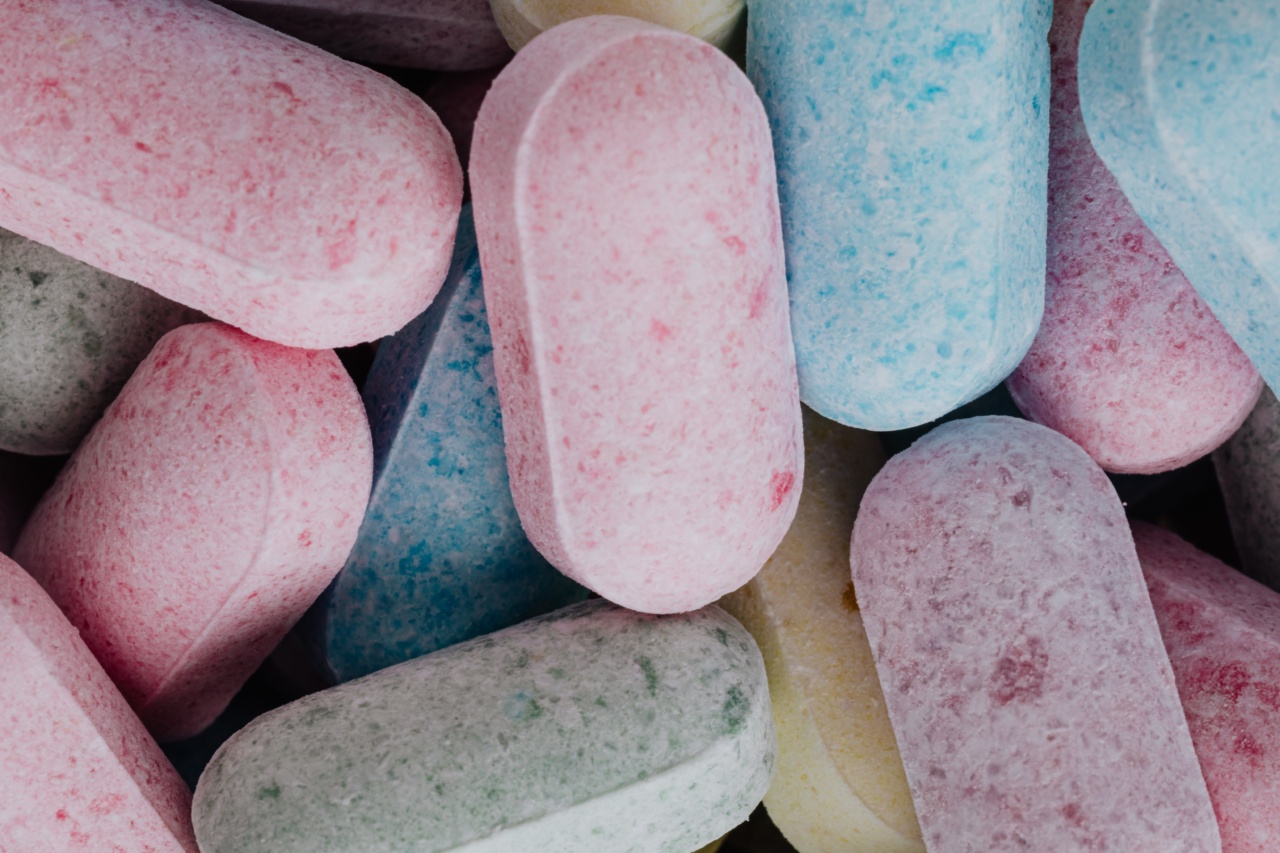Atopic dermatitis, also known as eczema, is a chronic skin condition characterized by red, itchy, and inflamed skin. It is a common condition that affects people of all ages, but it is more prevalent in children.
While there is no cure for atopic dermatitis, certain vitamins have been found to alleviate the symptoms and improve the overall health of the skin. In this article, we will discuss the top vitamins that can help treat the symptoms of atopic dermatitis.
Vitamin D
Vitamin D plays a crucial role in skin health and immune function. It helps regulate inflammation and supports cell growth and repair. Studies have shown that individuals with atopic dermatitis often have lower levels of vitamin D in their blood.
Supplementing with vitamin D can help reduce inflammation and improve the symptoms of atopic dermatitis. Additionally, getting some sun exposure can also increase your vitamin D levels.
Omega-3 Fatty Acids
Omega-3 fatty acids are essential fats that have anti-inflammatory properties. They can help reduce skin inflammation, itching, and dryness associated with atopic dermatitis.
Fish oil supplements, which are rich in omega-3 fatty acids, have been found to improve the symptoms of atopic dermatitis in several studies. Including foods rich in omega-3 fatty acids, such as fatty fish (salmon, mackerel), walnuts, and flaxseeds, in your diet can also be beneficial.
Vitamin E
Vitamin E is a powerful antioxidant that helps protect the skin from free radical damage. It also has anti-inflammatory properties that can help soothe the irritated skin in individuals with atopic dermatitis.
Applying vitamin E topically or taking it as a supplement can help improve the symptoms and promote skin healing. Foods rich in vitamin E include almonds, spinach, and sunflower seeds.
Vitamin C
Vitamin C is another powerful antioxidant that supports skin health. It helps the body produce collagen, a protein essential for skin structure and healing. Vitamin C also helps reduce inflammation and promotes a healthy immune system.
Including vitamin C-rich foods, such as citrus fruits, berries, and leafy greens, in your diet can benefit individuals with atopic dermatitis.
Vitamin B12
Vitamin B12 plays a crucial role in maintaining healthy skin and nerve cells. Deficiency of vitamin B12 can contribute to dry, itchy, and inflamed skin. Supplementing with vitamin B12 can help improve the symptoms of atopic dermatitis.
It is important to note that vitamin B12 is primarily found in animal-based foods, so individuals following a vegan or vegetarian diet may need to consider supplements.
Zinc
Zinc is an essential mineral that supports immune function and skin health. It plays a vital role in wound healing and helps reduce inflammation. Studies have shown that individuals with atopic dermatitis often have lower levels of zinc in their blood.
Supplementing with zinc can help improve the symptoms of atopic dermatitis and promote healthy skin. Foods rich in zinc include oysters, beef, pumpkin seeds, and spinach.
Probiotics
Probiotics are beneficial bacteria that support gut health and immune function. They can help regulate the immune response and reduce inflammation.
Studies have found that supplementing with probiotics can improve the symptoms of atopic dermatitis, especially in infants and children. Including probiotic-rich foods, such as yogurt, kefir, sauerkraut, and kimchi, in your diet can also be beneficial.
Vitamin A
Vitamin A is essential for skin health and plays a crucial role in cell growth and repair. It helps maintain the integrity of the skin barrier and supports the immune system.
Topical application of vitamin A derivatives, such as retinoids, can help reduce inflammation and improve the symptoms of atopic dermatitis. Including foods rich in vitamin A, such as carrots, sweet potatoes, and spinach, in your diet can also be beneficial.
Vitamin K2
Vitamin K2 is important for skin health and can help alleviate the symptoms of atopic dermatitis. It helps regulate blood clotting and promotes proper skin healing.
Including vitamin K2-rich foods, such as liver, grass-fed butter, and fermented foods, in your diet can benefit individuals with atopic dermatitis.
Iron
Iron is an essential mineral that supports overall health, including skin health. It plays a vital role in oxygen transport to the skin and helps maintain healthy cells. Iron deficiency can contribute to dry, itchy, and inflamed skin.
Ensuring an adequate intake of iron-rich foods, such as lean meats, spinach, and lentils, can help improve the symptoms of atopic dermatitis.
Conclusion
The symptoms of atopic dermatitis can be challenging to manage, but incorporating certain vitamins into your daily routine can help alleviate the symptoms and improve the overall health of your skin.
Vitamin D, omega-3 fatty acids, vitamin E, vitamin C, vitamin B12, zinc, probiotics, vitamin A, vitamin K2, and iron are all beneficial for individuals with atopic dermatitis. Consult with your healthcare provider before starting any new supplements or making significant dietary changes. With the right approach, you can effectively manage the symptoms of atopic dermatitis and improve your quality of life.































